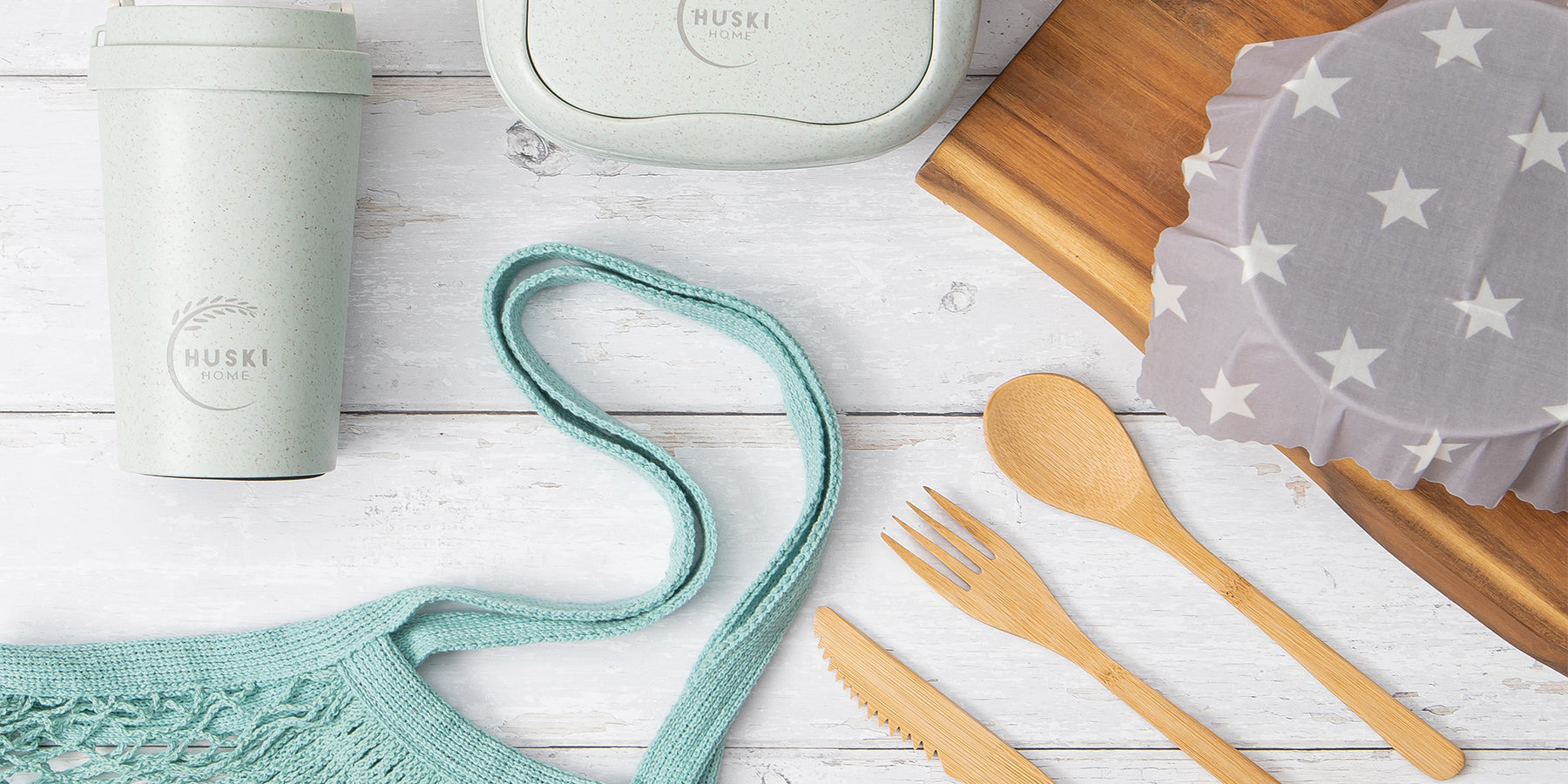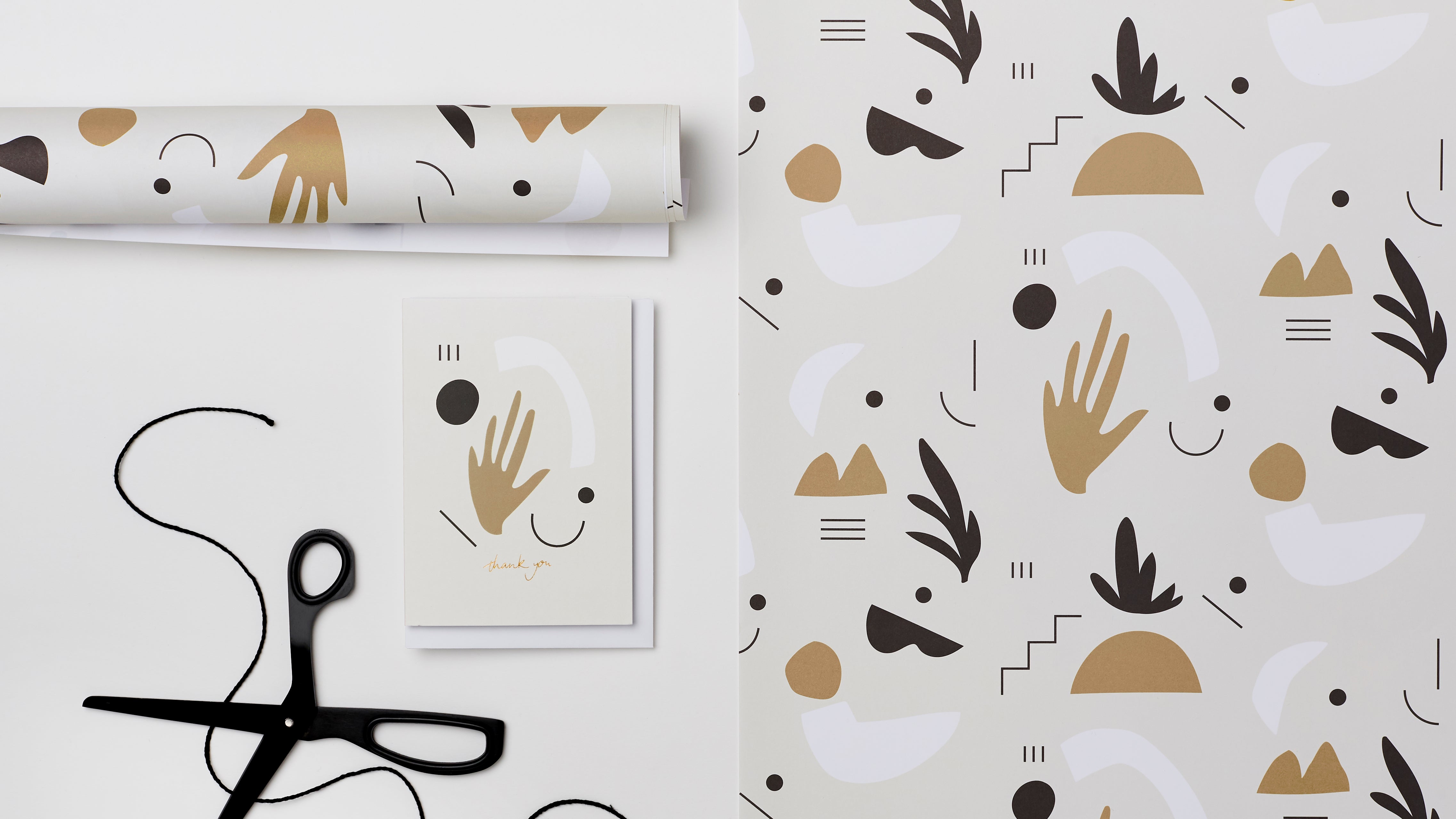
7 Zero Waste Swaps that Require Zero Effort
Yes we want to aim for a completely zero waste lifestyle, but for most of us, it’s a journey rather than a destination. Getting started is perhaps the hardest part though, because it’s so easy to feel overwhelmed.
However, by reducing waste in our daily routines with a few simple swaps or changes in behaviour that we barely notice, then it’ll be much easier to stick with them in the long run. That way, we’ll have a great foundation to build on, and we can add more swaps and changes over time. Before you know it, eco friendly living will be second nature and part of normal everyday life - fantastic!
Sounds great, but where do you start, really? Well, these are our top tips to help lower your environmental impact, that you can start doing today and that are genuinely super easy to do.
1. Switch to solid soap bars
It wasn’t all that long ago that a bar of soap was the norm, but liquid soaps have become steadily more popular over the years. Unfortunately, this means lots of extra plastic packaging that can be avoided by using a solid soap bar instead. There are so many high quality options out there though, in a huge variety of scents that mean you’ll be spoilt for choice. We stock fantastic brand Rather Lather, whose handmade soaps are made with essential oils. They really do make everyday washing feel like a spa experience!

Solid soap isn’t just for hand soap either, there are some great options out there now for solid shampoo and conditioner bars, shaving bars and even dish soap. Solid dish soap bars don’t lather in the same way your usual liquid versions do, but they will still leave your dishes squeaky clean. If you’re looking for more zero waste kitchen swaps, take a look at our range of eco friendly cleaning products.
2. Swap meal deals for a packed lunch.
It’s an oldie but a goodie, but taking a packed lunch will not only save you a few pennies, but it’ll really help to cut down on single use plastic waste. Extra points if you use up your leftovers for lunch too!
Lunchboxes can be anything from the tupperware that’s been at the back of the cupboard for years (the lid will be around somewhere…!), to takeaway tubs to a brand new plastic free one like these from Huski Home.

If you think about it, when buying a meal deal we’re buying a single use plastic bottle, single use plastic sandwich or salad container - often with extra plastic for sauces and mini forks etc - and a plastic wrapped snack. If you can plan in advance and pack a lunch, even if you only start with one day a week, then that will certainly make a difference over time.
If you’re out and about when you’re eating your lunch, don’t forget to pack a reusable water bottle and your own set of cutlery. Our reusable bamboo cutlery set is lightweight and perfect for the job, but even just taking your regular cutlery from the kitchen drawer will mean cutting down on plastic waste.
3. Save food jars to reuse them for storage
Yes we’re talking jam jars, and pasta sauce jars, and coffee jars...and literally anything that’s resealable that can be reused from your weekly shop. They may not be the prettiest, but see if you can get use from them before you chuck them in the recycling. Yes recycling’s great, but if it can be reused first, then even better.

4. Repurpose old clothes
We’re not talking here about becoming a sewing whizz and upcycling all your clothes into something new and fabulous (but if you do, fantastic!). Instead, we mean using clothes that can’t be reworn or resold, as rags for cleaning.
Any items donated to charity shops need to be in saleable condition. That means if you’ve patched things up, or an item is stained for example, then it’s no use to them as it can’t be sold. So why not give these items the chop and cut them into scraps before getting rid completely. They make ideal cloths for cleaning windows, bathrooms and other household chores. Old socks and even pants are great for the dirty jobs!
If that doesn’t appeal, then definitely aim to swap to a plastic free alternative. Swedish dishcloths are a great option, as not only can they be washed and reused, they’re plant-based and therefore home compostable. Not only that, they come in all kinds of colours and patterns to suit your kitchen style and make great little eco gifts.

5. Buy in bulk
In an ideal world, we’d be able to shop in the supermarket the same way we can shop at a zero waste store - with our own reusable packaging. Some of the big supermarkets are trialling bulk food dispensers which is a great step forward. However, until this is the norm, and if a separate shop at the zero waste store isn’t practical for you right now, then what can you do?
Our recommendation is to simply buy the largest size you can afford. For example, if you usually buy a 500g box of breakfast cereal, go for the next size up if you can, so 750g or even 1kg. It should work out cheaper too, in terms of cost per gram of cereal because the extra cost is for more of the actual product and less for extra packaging.
6. Cut down on clothing buys
It’s easy to be tempted by fast fashion and the buzz of buying something new, particularly when there are offers and promotions everywhere. However, this cheap pick me up comes with a heavy environmental price. According to Princeton University, “the fashion industry is currently responsible for more annual carbon emissions than all international flights and maritime shipping combined”. Now that’s a hefty statistic!
The best solution is to get more from what you already have. Be inspired over on Pinterest or Instagram by searching for items and styles you already own, to see how you can rework them into new outfits. There will certainly be an influencer out there who has a new way to wear that green jumper you’ve had for years, or accessorise the basics in a completely novel style.
If you do find yourself getting bored of your wardrobe, then try out vintage and second hand finds. If you really prefer new, then there are more and more ethical and sustainable fashion brands entering the market every week, so you’re sure to find something to suit your taste and budget.
7. Invest in a reusable coffee cup
The UK gets through literally billions of disposable coffee cups each year. However, just because takeaway coffee cups are made from paper, that doesn’t mean they’re recyclable. Unfortunately the plastic lining that makes them waterproof also means that they can’t be recycled and 99% of them will end up in landfill.
A reusable coffee cup is the answer. Our range from Huski Home is made from rice husks that are a waste product of the rice farming industry. The husks would otherwise be burned or buried, but here they’re repurposed into a useful product that will last for years - a definite win-win situation!

Hopefully these tips have inspired you to get started on your sustainability journey. Making a start doesn’t have to be difficult, or does it mean you have to invest in lots of eco friendly products from the outset. There are plenty of ways to make a difference simply by changing old habits. Let us know how you get on - and if you have any tips to add!
Pin it!



Leave a comment
This site is protected by hCaptcha and the hCaptcha Privacy Policy and Terms of Service apply.